Joshua Benton is a keen and privileged observer. For more than 20 years, he has been concerned with the freedom of the press and what is happening to journalism, journalists, and the traditional media. First, as a reporter and a journalist; then, for the past ten years, as a researcher at the Nieman Journalism Lab, which he founded at Harvard University. Joshua Benton has been searching for a response to the main questions for journalism and journalists in the face of a longstanding crisis that began with the burgeoning of the Internet. In recent years, the crisis has become only too marked, as in the case of the escalating circulation of false news on social media during the campaigns that culminated in the election of Donald Trump in the USA and Jair Bolsonaro in Brazil. The Nieman Journalism Lab acts effectively as a think-tank on journalism, collects and processes statistical data, and seeks to discover what may be behind the success or failure of the methods that the media test every day, worldwide, in order to survive. It seeks to help reporters and editors adjust to the needs of online publication. Neither the solutions nor the answers are easy to find, but the intention of Joshua Benton and the Nieman Lab is to find good ideas that others can steal: ‘We don’t pretend to have even five percent of all the answers, but we do know a lot of smart people.’
As director of the Nieman Lab at the University of Harvard, Joshua Benton is uniquely placed to observe the contemporary press and the problems it faces in an age of innovation and expanding online platforms. The following interview with the journalist Cristina Margato shows that these problems carry significant political implications, as the election of Trump made clear, and they present democratic societies with a challenge.
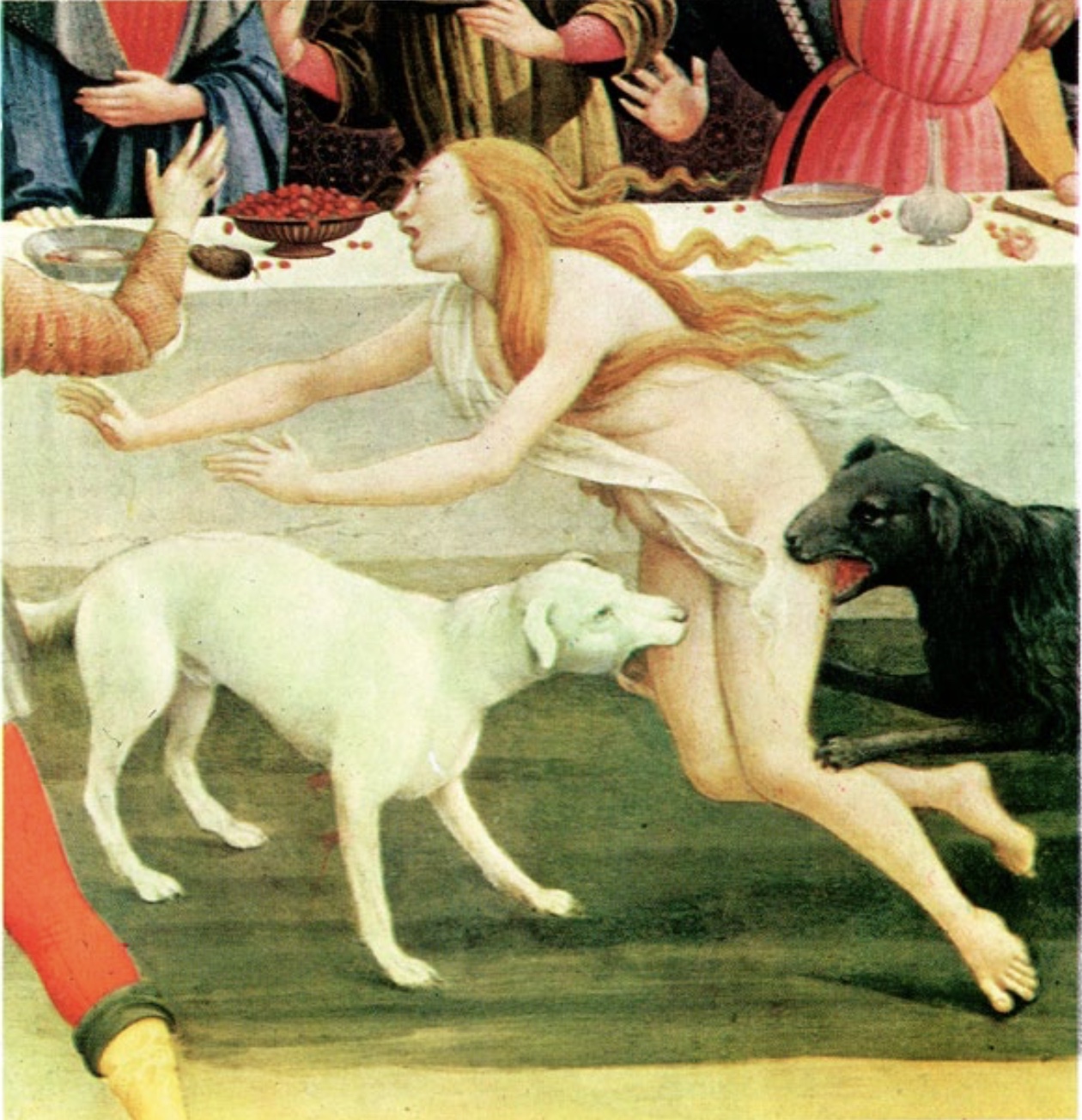
Sandro Botticelli, Nastagio degli Onesti [The Banquet in the Pine Forest], 1483 (detail)
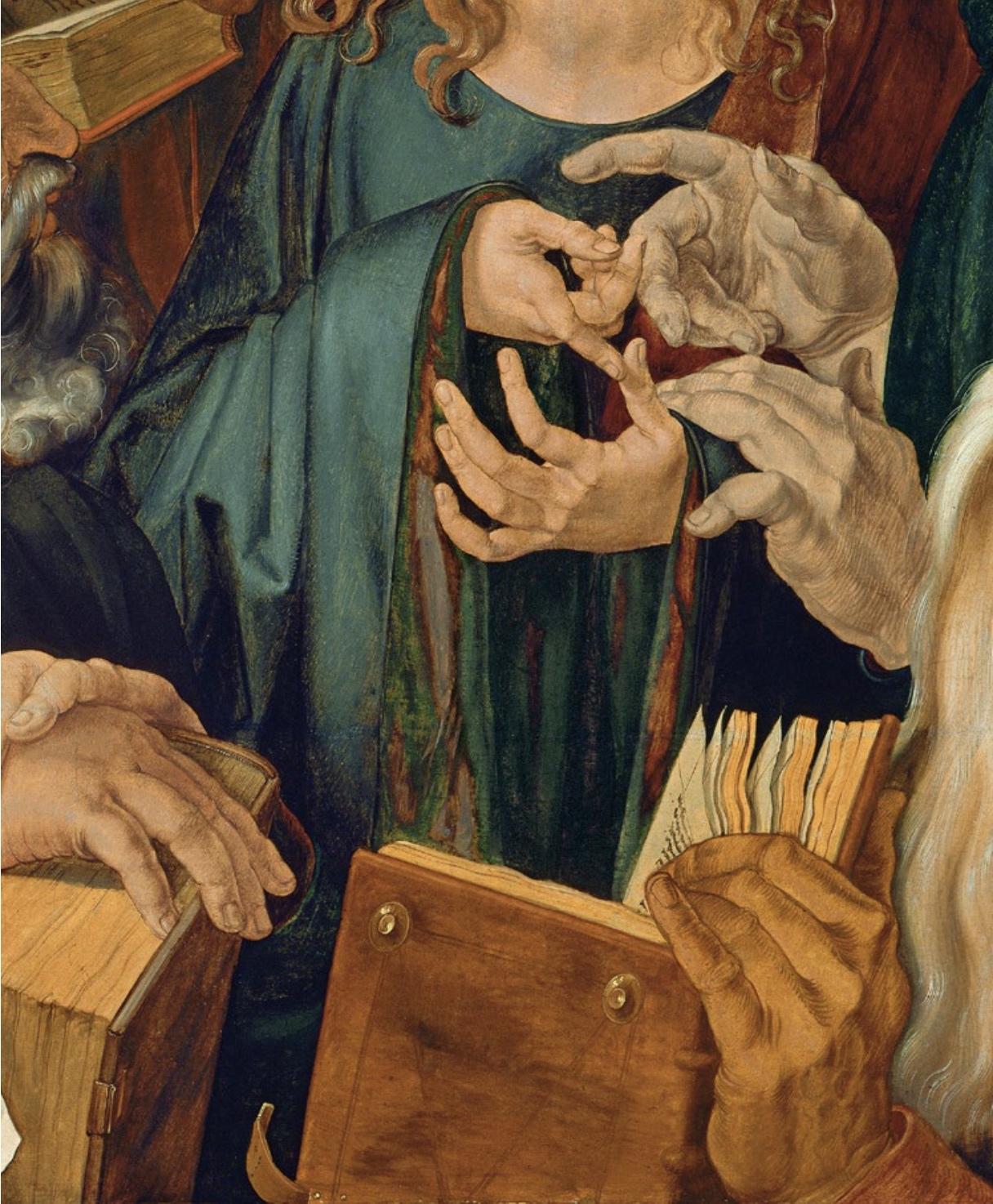
Albrecht Dürer, Christ among the Doctors, 1506 (detail)
CRISTINA MARGATO Two years ago, you said that the forces that drove the media failure during last American election were likely to get worse. Were you right? Have they gotten worse?
JOSHUA BENTON I think that in some ways they have gotten worse and maybe it’s gotten better. If there is one positive trend, it seems that the share of news people get from social media, like Facebook, seems to have peaked. In one sense, things are getting a little better; people are getting less of their news from social media. At the very least, the amount they get from social media has plateaued. Data from a variety of countries shows that people are becoming less reliant on Facebook for news. At the same time, Facebook is decreasing its interest in the news in a variety of ways. In January, they cut back the share of the news feed, which is made of news stories. It is probably a positive sign but, that said, I think the larger trends are still mostly unchanged. You have a broad shift from print and broadcasting of news to digital, which is necessarily less editorially structured. The decline of traditional media has continued. The shift from laptops and computers to mobile phones has continued and I think the broader concerns about our democratic discourse, in the US and elsewhere, I think it’s not gone away.
CM In the last USA election, the big problem was Facebook and fake news. If things were better regulated and people were not so exposed to fake news, would things be better for journalism and traditional media?
JB Things are not getting better for traditional media. Those who would like to have increasingly polarized or misinformed public discourse, they can innovate too, as we saw in the election in Brazil, where WhatsApp was the dominant platform, owned by Facebook but distinct from Facebook. Because WhatsApp is a black box that scholars can’t really look inside, we can’t have firm estimates for the amount of misinformation that was being spread all around those platforms, but certainly it looks like it’s a lot. So, even when one problem is solved, the certain nature of the digital beast is that new vectors for misinformation will keep being opened up and being explored by those who like to advance in all things.
CM Do you think that in the future we can look back and say that Facebook and other social media have destroyed democracy?
JB I’m not ready to declare democracy is destroyed yet. I’ll say this, I started building websites back in 1994. I remember the early days of the web and there were a lot of people who had very utopian visions for what the democratisation of publishing would bring. Under the old model, if you wanted to get your message out to people you had to own a printing press or own a broadcasting tower, it was capital-intensive. It meant only a small number of people were allowed to have access to the public in a significant way. Along comes the web, which created all this opportunity for new and wonderful information to reach people and a lot of people thought: ‘This is great. This is the democratisation of media.’ I think over time we have come to realize that while there’s a lot of truth in that, it also opens up the ability to reach out to people who have bad intentions, and it also opens up the realization that there was a lot of news consumption under that old model, not because people were really interested in the news but because there just were no other options. It is now very easy for someone to be mentally stimulated and to have his or her time filled playing games on the phone as opposed to reading the newspaper. If they don’t want to watch linear television and wait for broadcast news to show up, they can go to Netflix and spend all their time there. As more options arrive, more and more people are choosing other things than news.
CM On the other hand political reality has more elements from reality shows, satire, and entertainment television…There is a reality-televisation of politics?
JB So, I think there is some truth in that. I would say that Donald Trump established his brand. He is a savvy media person. When tabloid journalism was the way to achieve a certain amount of fame and notice, he was happy to engage with the New York City tabloids. When it shifted to reality television, he moved there. When social media come to the fore, he was the first on twitter. I will say that it’s more complicated than calling it the ‘reality-televisation’ of politics. In reality, television discourse is increasingly reliant on emotional responses. In Facebook, you are asked to give an emotional response: ‘I like this’, ‘I love this’, ‘This makes me mad’, ‘I’m shocked by this’. Those are the emoji reactions that the platform encourages. When Mark Zuckerberg announced changes to the news feed in January, he wrote that Facebook values information not based on usefulness, but on the amount of conversation and interactions that it provokes. If you want to do well in the Facebook news feed algorithm, you want to have a lot of people talking about what you do in the comments, and if that is what values information over others, I think you’re tapping into some very old human instincts. We like to be provoked and to provoke and it is easy to do both in those platforms we’ve created.
"The gap between the highly informed and the lesser informed is growing and I think in that sense there is a return to that pre-mass media age, before advertising enabled the creation of mass media."
CM Do you think that journalism needs a new code of ethics in order to survive?
JB I think it’s really hard to talk about that sort of sweeping term because there isn’t one journalism – there are hundreds of thousands of journalisms. If the idea is to set standards of the kind of work that the news organization wants to do, they can certainly do that. But there always will be other people choosing different kinds of standards or no standards at all. I think that the direction where all this is headed is: we will see a split between traditional-minded products and ethically-sound premium news products that are delivered to people who are willing to pay for it, able to pay for it and interested enough in the news. When The New York Times put up a paywall and they got over 2 million people to agree to pay for access to The New York Times site, that’s an example of that. But that is not a random selection of the American population and the world population. I fear that for everyone else who lacks either the means or the interest to engage with quality journalism, and there are other people that are going to be increasingly engaged with junk, that split is going to continue to increase.
CM So, it’s like having a first world and a second world, a hierarchization of society, which is nothing new, but in this case corresponds to a new model…
JB I think media historians would say that one way to view this shift is not to view it as a radical new world but instead to view it as a continuation of a lot of ways that journalism used to be. This digital period is weird, more than the period when there were mass audiences who had access to deeply subsidized, comparably high-quality user information – that is the exception. There was always a difference between the amount of information and knowledge in the world that is available to the well-off and the poor, between the people who have business reasons to want to know all about the rest of the world and those who don’t, between people who have access to power and people who don’t. I’m thinking that in a lot of ways this is returning to that early period.
[...]
*Translated by Maria Jorge de Freitas

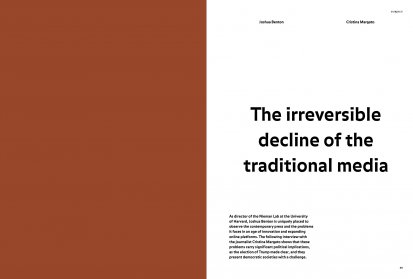

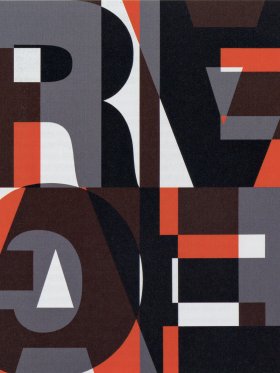
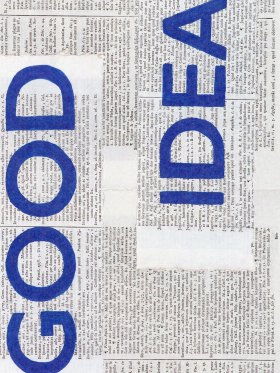
Share article